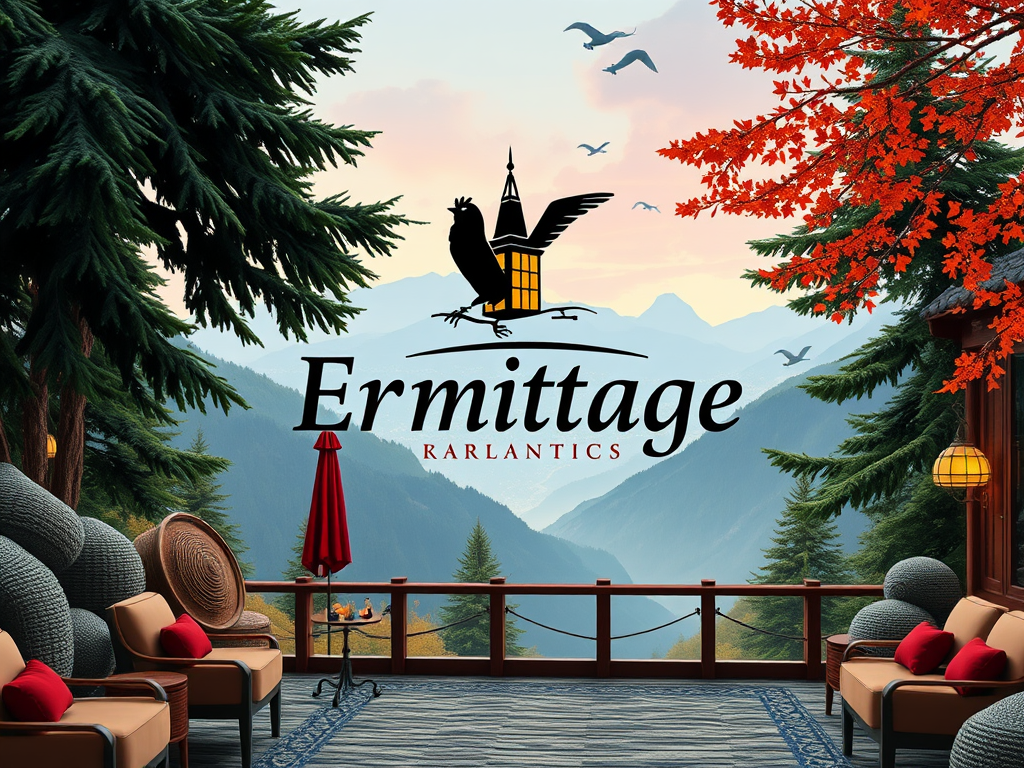Overview of British Metal Casting
The British metal casting industry boasts a rich history, reflecting its integral role in the country’s industrial growth. Dating back to pre-Roman times, metal casting in Britain evolved remarkably through the centuries, shaping innovations in both metalworking techniques and materials. The journey from using basic molds to sophisticated cast iron production during the Industrial Revolution highlights significant technological progress.
In its early days, British metal casting relied heavily on traditional materials like bronze and iron. Over time, the introduction of novel materials and methods such as steel and aluminum further advanced the craft. This evolution was crucial not only for the industry itself but also for the nation’s broader technological advancements. The shift from handcrafting to mechanized processes embodied a narrative of adaptation and innovation.
This might interest you : Explore the best uk national parks for exciting wildlife adventures and genuine habitat explorations!
The significance of metal casting in the UK’s industrial heritage cannot be overstated. It empowered the British manufacturing landscape, underpinning sectors such as transportation, construction, and art. These developments solidified the metal casting industry as a cornerstone of Britain’s economic and cultural identity. Hence, metal casting continues to be a source of national pride, contributing to Britain’s reputation as a leader in industrial artistry and craftsmanship.
Techniques Used in British Metal Casting
British metal casting is enriched by a blend of traditional methods and modern innovations, creating a diverse and robust industry. Among the traditional metal casting methods, sand casting and lost-wax casting are preeminent. Sand casting, known for its versatility, involves creating a mold from sand where molten metal is poured, making it ideal for large components. In contrast, lost-wax casting allows for intricate details by using a wax model surrounded by a ceramic shell, which is melted away before pouring the metal.
In the same genre : Unearthing Top British Quilt-Making Workshops: A Tourists’ Guide to Immersive Craft Experiences
Modern techniques have further transformed the landscape of British metal casting. Advancements such as investment casting and die casting have enhanced precision and efficiency. Investment casting, similar to lost-wax, offers high accuracy and smooth finishes, benefiting aerospace and medical industries. Die casting, employing high-pressure molds, is favored for mass production of complex parts, significantly reducing costs.
Comparatively, modern methods are generally more cost-efficient and offer greater precision than traditional ones. However, traditional techniques still provide invaluable artistic and historical value, highlighting the cultural significance of metal casting in the UK. As the industry evolves, the synergy between time-honored skills and cutting-edge technology continues to drive innovation and prosperity.
Immersive Visitor Workshops
Exploring the world of metal casting can be a transformative experience, especially through metal casting workshops. These workshops provide hands-on experiences, allowing visitors to actively participate in the fascinating process of turning molten metal into works of art or functional pieces. Catering to all skill levels, from beginner to advanced, workshops offer a unique opportunity to learn and understand the intricate craft of metal casting.
Types of Workshops
Workshops vary extensively, aiming to meet a range of interests and expertise levels. They often include foundational courses for beginners, teaching basic casting techniques and safety procedures. Meanwhile, advanced workshops delve into specialized skills, enabling participants to tackle complex projects with precision. By offering both introductory and advanced options, workshops ensure that everyone can find a suitable challenge and deepen their appreciation for this traditional craft.
Key Locations Across Britain
Britain hosts an array of popular workshops in regions renowned for their metal casting heritage. Cities like Birmingham and Sheffield, famed for their rich industrial past, provide immersive environments for learning. These key locations offer participants the chance to engage with historic techniques among communities that have practiced and innovated in the field for generations. Such settings enhance the educational experience, grounding learning in authentic cultural contexts.
What to Expect in a Workshop
Participants can anticipate a structured approach that combines theory with practice. Workshops typically offer guided learning processes, utilizing essential equipment like kilns and safety gear. Instructors provide detailed explanations of materials used, from metal alloys to casting molds. The emphasis on safety, learning, and creativity ensures a comprehensive introduction to the metal casting process. Visitors leave not only with newfound skills but often with their own handcrafted piece, epitomizing a rewarding and tangible connection to this age-old craft.
Heritage and Cultural Significance
The cultural heritage of metal casting in Britain is both profound and far-reaching, deeply embedded in the country’s history and identity. As an art and craft, it has played a pivotal role in shaping local communities and defining British craftsmanship, something that holds substantial significance even today. In regions known for metal casting, such as Birmingham and Sheffield, the process is celebrated as a cultural legacy, linking the past with the present.
Metal casting has influenced British culture by providing communities with economic opportunities and a sense of identity. The metal casting industry has not only contributed to technological advancements but also fostered a strong tradition of artistry and skilled labour which are celebrated through local events and exhibitions. These efforts promote the preservation of heritage techniques, ensuring that the knowledge and expertise involved in metal casting are not lost to time.
Preserving these cultural techniques involves a concerted effort from local communities and national organizations, emphasizing the importance of maintaining historical preservation practices. Projects geared towards this goal often focus on engaging new generations with interactive experiences and educational programs, reinforcing the relevance of metal casting to Britain’s shared cultural landscape.
Engaging Visuals and Case Studies
Visual storytelling plays a pivotal role in demystifying the complex art of metal casting. It captures the intricate processes, thriving culture, and personal stories of artisans, bringing to life a craft often hidden from the casual observer. Through photographs and videos, observers gain an insightful glimpse into the detailed metalworking techniques, offering a visceral connection to this historic industry.
Artisan Stories and Workshop Experiences
Case studies of artisans reveal the passion and perseverance behind their creations. These stories often highlight unique approaches and the incorporation of both traditional and modern metal casting techniques. By illustrating the personal journeys of these craftsmen, the narratives enrich the understanding of the craft’s impact on their lives and its broader cultural significance.
Workshops also offer poignant testimonials. Participants often share how these hands-on experiences have deepened their appreciation for the meticulous skill involved in metal casting. Through immersive engagement, attendees not only learn the practical aspects of casting but also form a meaningful connection to this age-old practice. Personal accounts from workshops underline the workshops’ role in inspiring continued fascination and participation within the craft.
Overall, engaging visuals and authentic case studies effectively bridge the gap between past and present metal casting practices, highlighting their enduring value within British culture.
Practical Tips for Participation
Participating in metal casting workshops can be both exciting and educational. To ensure you have the best experience, it’s important to come prepared. Here you’ll find essential tips for beginners and insights to help you engage fully.
Essential Items for Workshops
Before attending a metal casting workshop, make sure to pack some key items. A sturdy apron is essential to protect your clothes from the inevitable splashes of metalworking materials. Comfortable, closed-toed shoes are a must for safety. Bringing a notebook can also be beneficial for jotting down notes on casting techniques and instructor tips. Additionally, don’t forget your enthusiasm and curiosity!
Tips for Making the Most of Your Experience
To maximize your hands-on experience, actively participate in all activities. Don’t hesitate to ask questions, as instructors are a wealth of knowledge. Engage with fellow participants; exchanging ideas can enhance your understanding of metalworking techniques. When working on a project, take the opportunity to apply both traditional and modern methods, exploring how each contributes to the final product.
Further Learning and Exploration
After the workshop, continue your exploration by utilizing additional resources. Many organizations offer online tutorials and courses that expand on what you’ve learned. Joining local clubs or online communities can provide ongoing support and inspiration. Keep refining your skills by exploring reading materials focused on British metal casting to deepen your industry knowledge.
Resources for Deeper Exploration
Venturing beyond initial exposure to British metal casting can be an enlightening journey, enriched by a wealth of additional resources. For individuals eager to deepen their understanding and skills, numerous avenues exist to supplement knowledge gained from workshops and practical experiences.
Recommended Books and Articles: A treasure trove of reading materials is available, offering insights into the industry’s evolution and complex metalworking techniques. Titles that delve into the historical and technical aspects of metal casting provide an in-depth view of its development. These books serve as essential companions for anyone wishing to explore the nexus between traditional craftsmanship and modern-day practices.
Online Courses and Tutorials: Aspiring metal casters can benefit from engaging online content, which includes comprehensive courses and tutorials. These digital resources typically cover a range of topics, from basic casting techniques to advanced innovations in the craft. Online platforms offer an accessible means to continue learning, allowing individuals to progress at their own pace and convenience.
Organizations and Communities: Joining communities dedicated to metal casting can greatly enhance your exploratory journey. Various organizations actively promote the preservation and enrichment of metal casting heritage. They offer workshops, forums, and exhibitions that foster collaboration and the exchange of ideas among enthusiasts and experts alike. By connecting with these communities, participants not only gain access to exclusive resources but also become part of a vibrant network passionate about continuing this historic craft.

